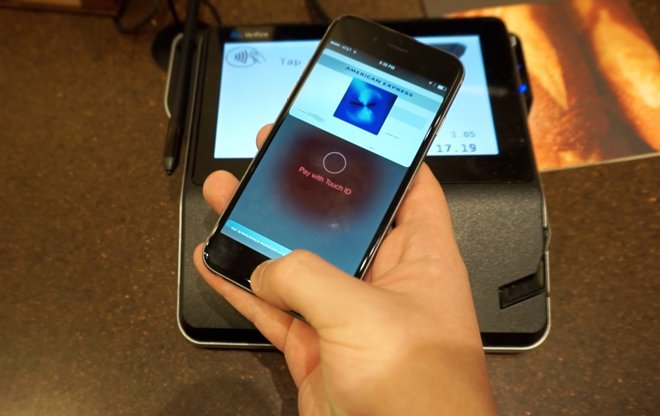Apple Pay momentum continues to propel the nascent payments system forward, and Apple on Tuesday announced the addition of 39 participating financial institutions, 27 of which are credit unions.
Apple added 39 new entries to its list of Apple Pay participating issuers, as reflected in a corresponding Support Pages document on the company's website, bringing the total up to 145 banks and credit unions.
New additions include America's Christian Credit Union, America's Credit Union, Arizona Federal Credit Union, BankPlus, BMI Federal Credit Union, Canton School Employees FCU, Charles Schwab Bank, Clearview Federal Credit Union, First Community Bank & Trust, First Community Credit Union, First Credit Union, First National Bank of Pennsylvania, GTE Financial, Gulf Winds FCU, Hiway Federal Credit Union, Independent Bank, Jordan Credit Union, KeyBank, Lake Michigan Credit Union, Langley Federal Credit Union, Los Angeles Federal Credit Union, Members First Credit Union, Michigan State University Federal Credit Union, NBT Bank, ORLN Federal Credit Union, Prosperity Bank, RBC Bank, Sacramento Credit Union, Salem Five Bank, San Francisco Fire Credit Union, Sandy Spring Bank, Schools Financial Credit Union, Silicon Valley Bank, TruMark Financial Credit Union, United Nations FCU, Vantage Credit Union, VyStar Credit Union, Wanigas Credit Union and Wings Financial Credit Union.
It appears credit unions are more willing — or nimble — than banks to adopt Apple Pay, as seen by today's additions. Earlier in March, Apple added a 18 issuers to the running list, 16 of which were credit unions.
Apple Pay now supports credit cards and debit cards issued by nearly 150 financial institutions across the U.S., with another 700 reportedly awaiting authorization.
Helping stoke adoption are stores that offer Apple Pay-compatible touchless point of sale terminals, the number of which recently expanded with 14 new merchants including Jamba Juice, Coca-Cola vending machines and more.
 AppleInsider Staff
AppleInsider Staff








 William Gallagher
William Gallagher
 Charles Martin
Charles Martin
 Christine McKee
Christine McKee
 Wesley Hilliard
Wesley Hilliard
 Malcolm Owen
Malcolm Owen
 Andrew Orr
Andrew Orr

 Sponsored Content
Sponsored Content







22 Comments
I've given up on my CU at this point. Promises are nice, follow through is better. I'll switch banks when my car is paid off in a few months.
Maybe these CUs are all using the same software platform? So if the underlying software gets updates to support ApplePay, its easy for CUs to flip the switch?
Maybe these CUs are all using the same software platform?
Credit unions do almost everything through a larger contractor. Cards, checks, wires, loans... "Local" is a big fat lie. They don't even invest money in deposit accounts themselves, they give your money to a "corporate" or wholesale credit union, the two largest of which took bailout money and were subsequently closed.
Woo hoo!!! I'm up on ApplePay at last.
Meanwhile in Canada the 7.5 million a year CEO of RBC sees his bank as being in a collision course with Apple (and Google). "Dave McKay, the chief executive of Royal Bank of Canada, says the bank is on a “collision course” with the likes of Apple Inc. and Google Inc. as customers begin to fully embrace mobile banking. Apple Pay, the smartphone giant’s mobile payment platform, is taking off in the United States, but such systems threaten to get in between banks and their customers, Mr. McKay told RBC investors and clients at a conference in New York. Though RBC would still be paid for transactions if it were to embrace the platform, the bank would lose an important connection to the customer that exists with other payment methods such as credit cards. “So we’re on a collision course,” Mr. McKay said, acknowledging that taking on the technology behemoths is not something even Canada’s largest bank would choose to do unless it was necessary. RBC is seeking an alternative where the bank can be at the top of the ecosystem, Mr. McKay said, adding that banks have an edge right now through customers’ trust and a reputation for security with their money. “Trust and security are key assets. They buy us time,” he said.